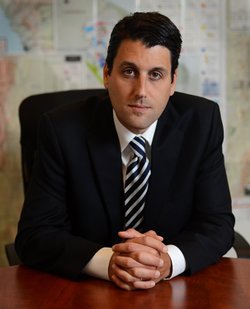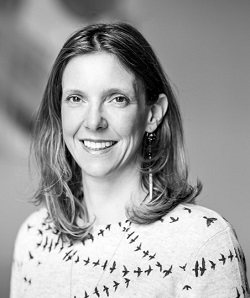Transcripts
 Erik: Joining me next on the program is natural resource guru, Marin Katusa. Now, as many of you know Marin was our most requested guest speaker for MacroVoices Live. Unfortunately, we couldn’t get him on the schedule because Marin is one of the sponsors of the Vancouver Resource Investment Conference (which starts the very next day) and has a lot of responsibilities. The tradeoff was we were able to get him on the show a couple of weeks ahead of time.
Erik: Joining me next on the program is natural resource guru, Marin Katusa. Now, as many of you know Marin was our most requested guest speaker for MacroVoices Live. Unfortunately, we couldn’t get him on the schedule because Marin is one of the sponsors of the Vancouver Resource Investment Conference (which starts the very next day) and has a lot of responsibilities. The tradeoff was we were able to get him on the show a couple of weeks ahead of time.
So, Marin, thanks so much for taking time out of your busy schedule to join us on the program today.
Marin: It’s a pleasure, Erik, always a pleasure.
Erik: The first time that I interviewed you on this program, you described an opportunity to buy Nevsun on speculation because you thought it was a takeover target. And you became something of a rock star in the eyes of many of our listeners because that stock just shot up like 50% two days after your interview.
 Erik: Joining me next on the program is Daniel Want, cofounder and CIO at Prerequisite Capital in Australia. Daniel, thanks so much for joining us on the program.
Erik: Joining me next on the program is Daniel Want, cofounder and CIO at Prerequisite Capital in Australia. Daniel, thanks so much for joining us on the program.
I want to start with your overall view of the market, because you take a different approach than other people. You apply systems analysis to financial markets. What specifically do you mean by systems or system thinking? And how does that play into the way that you approach markets generally?
Daniel: Thanks, Erik. Basically, the majority of us are trained, when we go through university or even in a lot of the more conventional and institutional sort of career paths of fields of study, especially economics and finance, to think effectively in quite a linear, reductionist-type mechanical sort of manner.
When we talk about a systems view of the world, what it is doing is shifting our view of the world from the world operating as a machine towards the world operating as a living ecological-style adaptive system. So it’s drawing on a lot of lessons from complex adaptive system theory and trying to better understand the interconnectedness, how everything fits together, and the knock-on effects, the relationships – the adaptive nature of all of these relationships and things and how it all transitions.
Instead of looking at, for example, a subsystem or a company or – in this case we’re going to be talking a little bit about banks. Instead of looking at a bank in isolation through a reductionist mechanical view of the world, where we’re trained to basically look at capital adequacy ratios and all of this sort of thing, at the bank in isolation.
 Erik: Joining me next on the program is Professor Edward Altman from the NYU Stern School of Business. Dr. Altman is perhaps best known for the Z-Score measure of credit, which we’ll discuss in this interview.
Erik: Joining me next on the program is Professor Edward Altman from the NYU Stern School of Business. Dr. Altman is perhaps best known for the Z-Score measure of credit, which we’ll discuss in this interview.
Before we get started, though, Dr. Altman provided a fantastic slide deck. Listeners, you will find the link to that slide deck in your Research Roundup email. If you’re not yet registered, just go to macrovoices.com, look for the red button next to Dr. Altman’s picture that says “Looking For The Downloads.”
Dr. Altman, I’d like to start with the really big picture. So many people in finance have said, okay, that’s it, the secular bull market is over. The secular bear market is on. Once we break 3.10 on the 10-year, baby, it’s all over after that. Yields will never go lower. The market’s headed straight down in terms of price.
And, of course, what we’ve been seeing in the last several weeks is the exact opposite. So what’s going on here? Where are we in the cycle? Are we really at the beginning of a new cycle or the end of an old cycle? And, if not, where are we in the cycle? And what are the signs we should be looking for to tell us whether and when it’s ending?
 Erik: Joining me next is JDI Research founder Juliette Declercq. Juliette has prepared another of her fantastic chart books for us so be sure, listeners, to download it. You can find the download link in your Research Roundup email. If you’re not registered yet, just go to macrovoices.com, look for Juliette’s picture on our home page, and the red button that says “Looking for the Downloads” next to her picture.
Erik: Joining me next is JDI Research founder Juliette Declercq. Juliette has prepared another of her fantastic chart books for us so be sure, listeners, to download it. You can find the download link in your Research Roundup email. If you’re not registered yet, just go to macrovoices.com, look for Juliette’s picture on our home page, and the red button that says “Looking for the Downloads” next to her picture.
Juliette, you have had a grim outlook on global activity since January of this year. And you’ve successfully translated that into substantial profits for your clients this summer. My question now, though is: Is the Trump/Xi agreement from the G20 a game change, as so many people seem to think it is?
 Erik: Joining me next on the program is MI2 founder, Julian Brigden. Julian has been one of our most prescient guests. A lot of his calls on the fixed income markets in particular have been incredibly accurate. And it’s so timely to get him back on the program as everyone is wondering, okay, what’s going on with 10-year Treasury yields? Are we really headed much higher from here? Or are we seeing what actually might be the beginning of a major retracement downward in yields?
Erik: Joining me next on the program is MI2 founder, Julian Brigden. Julian has been one of our most prescient guests. A lot of his calls on the fixed income markets in particular have been incredibly accurate. And it’s so timely to get him back on the program as everyone is wondering, okay, what’s going on with 10-year Treasury yields? Are we really headed much higher from here? Or are we seeing what actually might be the beginning of a major retracement downward in yields?
Julian put a fantastic chart book together. Registered users will find the download link in your Research Roundup email. If you’re not registered yet, just go to our home page at macrovoices.com. Look for the red button that says “Looking For The Download” next to Julian’s picture.
Julian, before I get into specific questions, let’s start with the really big picture of what drives the fixed income markets. What is the big picture driver of yields that you look at? And how does that play into your overall thesis that you’ve described to us in past interviews? And what are you seeing now in this market?
Julian: We have been very adamant, and we got lucky at calling the lows back in July of 2016 – as yields were around 1.35%, 1.36% – in saying that we thought the low was in in Treasury yields. And I mean the low. And one of the reasons for that, Erik, is that I think people frequently misinterpret the bigger picture.
The bigger picture is really set, to a large extent, by demographics. And I think a lot of people draw inferences to Japan and say, look, 10-year Treasury yields have to go toward 10-year JGB yields. To me, that’s wrong for a couple of reasons.
Firstly, Japan is a little unusual. It eats what it kills. So it does fund its own deficit. The United States is a little different. It actually relies on overseas funding of deficits.
MACRO VOICES is presented for informational and entertainment purposes only. The information presented in MACRO VOICES should NOT be construed as investment advice. Always consult a licensed investment professional before making important investment decisions. The opinions expressed on MACRO VOICES are those of the participants. MACRO VOICES, its producers, and hosts Erik Townsend and Patrick Ceresna shall NOT be liable for losses resulting from investment decisions based on information or viewpoints presented on MACRO VOICES.
